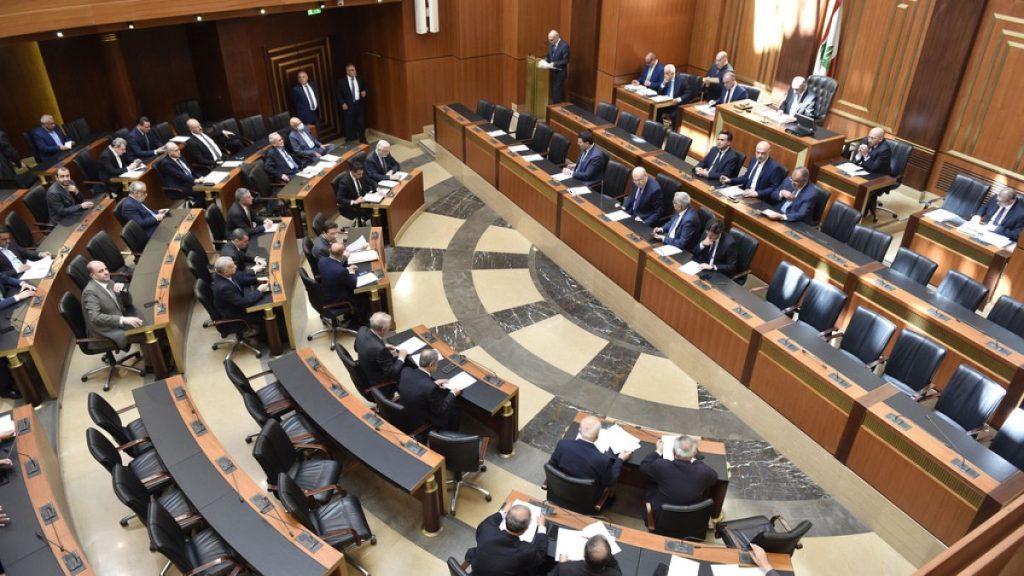Paragraph 1: The Presidential Void and the 13th Attempt
Lebanon, mired in political instability and economic turmoil, embarked on its 13th attempt to elect a president on Thursday, seeking to fill a void that had persisted for over two years. The protracted vacancy, a consequence of the country’s deeply fractured political landscape, underscored the challenges facing the nation as it grappled with the aftermath of a devastating conflict and a crippling economic crisis. The previous 12 parliamentary sessions had failed to produce a successor to former President Michel Aoun, whose term ended in October 2022, leaving the nation rudderless in a time of profound need.
Paragraph 2: Aoun Emerges as Frontrunner Amidst Parliamentary Chaos
The fourteenth parliamentary session commenced with a flurry of activity and a palpable sense of anticipation. Despite chaotic scenes early in the proceedings, with lawmakers engaging in heated exchanges, the first round of voting concluded with Army Commander Joseph Aoun emerging as the frontrunner. Garnering 71 votes out of the 128-member parliament, Aoun demonstrated significant support but fell short of the two-thirds majority required for an outright victory in the initial round. The remaining votes were dispersed, with 37 lawmakers casting blank ballots and 14 opting for symbolic votes for "sovereignty and the constitution," reflecting the persistent divisions within the legislature.
Paragraph 3: Aoun’s Backing and the Shifting Political Landscape
Joseph Aoun’s candidacy gained momentum following the withdrawal of Suleiman Frangieh, a prominent Christian leader with close ties to the Syrian regime. Frangieh’s endorsement of Aoun, combined with the reported support of key international actors such as the United States and Saudi Arabia, positioned the army commander as the leading contender. This shift in the political landscape raised hopes that the prolonged presidential vacuum might finally be filled, offering a glimmer of stability in a nation grappling with multifaceted crises. The international backing for Aoun, particularly from nations crucial for Lebanon’s economic recovery, signaled the potential for much-needed aid and support in rebuilding the war-torn nation.
Paragraph 4: Constitutional Hurdles and the Path to the Presidency
Despite his frontrunner status, Joseph Aoun’s path to the presidency is not without obstacles. As a sitting army commander, he faces a constitutional prohibition against assuming the role directly. While this ban has been waived in the past, it introduces additional procedural complexities. Securing the presidency requires a two-thirds majority in the first round or a simple majority in subsequent rounds. However, due to the constitutional constraints surrounding his military position, Aoun would require a two-thirds majority even in a second round of voting, a significant hurdle given the current parliamentary dynamics.
Paragraph 5: The Daunting Challenges Ahead for the New President
The individual who ultimately assumes the presidency will inherit a deeply troubled nation burdened by a confluence of crises. Beyond the immediate need to solidify the ceasefire agreement that ended the recent conflict with Israel and secure funding for reconstruction, the incoming president will face the daunting task of reviving a shattered economy and a crumbling infrastructure. The economic and financial crisis that has gripped Lebanon for six years has decimated the national currency, eroded savings, and plunged much of the population into poverty. The new leader will also need to navigate the complex political landscape and forge consensus among competing factions to implement crucial reforms.
Paragraph 6: The IMF Bailout and the Path to Economic Recovery
A key challenge for the incoming president and government will be to secure a much-needed bailout package from the International Monetary Fund (IMF). While Lebanon reached a preliminary agreement with the IMF in 2022, progress on implementing the necessary reforms has been sluggish. The IMF’s demands for fiscal discipline, transparency, and structural reforms are essential for unlocking the bailout funds, which are crucial for stabilizing the economy and restoring investor confidence. The new leadership will need to demonstrate a commitment to these reforms to unlock the financial lifeline offered by the IMF and pave the way for long-term economic recovery. The success or failure of these efforts will determine whether Lebanon can emerge from its current crisis and chart a course towards stability and prosperity.














